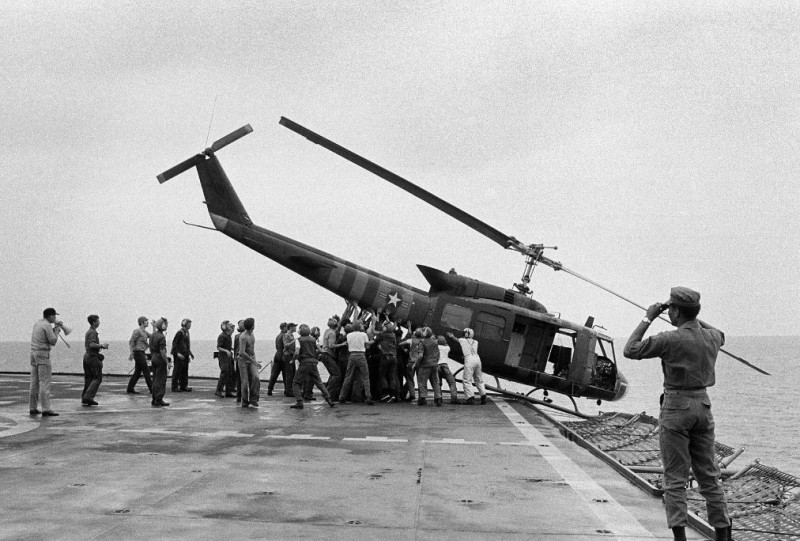
The Vietnam War was a significant conflict that lasted for two decades, from 1955 to 1975. It was a long and grueling war between North Vietnam, supported by communist allies, and South Vietnam, aided by the United States and other anti-communist nations. The war finally came to an end with the fall of Saigon, the capital of South Vietnam, in 1975. This event marked the conclusion of the war and had far-reaching consequences for Vietnam and the rest of the world.
Introduction: The Vietnam War and its Historical Context
In the 20th century, Vietnam was a battleground for ideological conflicts, with the North advocating for communism and the South supporting capitalism. The Vietnam War emerged as a result of these opposing ideologies and the desire to unify the country under a single government. The conflict attracted international attention and drew the involvement of major world powers.
Causes and Escalation of the Vietnam War
The causes of the Vietnam War were complex, with factors such as nationalism, Cold War tensions, and the domino theory playing significant roles. The United States gradually escalated its involvement, initially providing military advisors and later deploying combat troops to support the South Vietnamese government. The war intensified as both sides engaged in fierce battles and employed various tactics.
American Involvement in the Conflict
The United States' involvement in the Vietnam War was driven by the fear of communism spreading throughout Southeast Asia and the domino theory. American troops fought alongside South Vietnamese forces against the communist North. However, the war faced mounting criticism and opposition within the United States, leading to a growing anti-war movement.
The Tet Offensive and Turning Point in the War
The Tet Offensive in 1968 marked a crucial turning point in the Vietnam War. The North Vietnamese and Viet Cong launched a massive coordinated attack on cities and military installations across South Vietnam during the Lunar New Year ceasefire. Although the offensive was eventually repelled, it shattered the belief that the war was nearing its end and fueled public disillusionment in the United States.
Nixon's Vietnamization and the Paris Peace Accords
In 1969, President Richard Nixon introduced the policy of Vietnamization, which aimed to gradually withdraw American troops while shifting the burden of fighting to the South Vietnamese forces. Negotiations took place in Paris, resulting in the signing of the Paris Peace Accords in 1973. The agreement sought to achieve a ceasefire and create a framework for a political settlement in Vietnam.
Fall of Saigon: The Final Chapter
The fall of Saigon in 1975 marked the final chapter of the Vietnam War. As the North Vietnamese forces advanced southward, the South Vietnamese government and its American allies struggled to defend the capital. On April 30, 1975, North Vietnamese tanks rolled into Saigon, capturing key government buildings and establishing control. This event signaled the defeat of the South Vietnamese government and the end of the war.
Immediate Aftermath and the Reunification of Vietnam
Following the fall of Saigon, Vietnam was unified under communist rule. The victorious North Vietnamese government embarked on a series of policies to consolidate power and rebuild the war-torn country. The reunification of Vietnam brought about significant social, political, and economic changes, with the country adapting to a new era.
Legacy and Lessons from the Vietnam War
The Vietnam War left a lasting impact on Vietnam and the world. It claimed the lives of millions of Vietnamese and thousands of American soldiers. The war sparked widespread anti-war sentiment and protests in the United States, leading to shifts in public opinion and government policies. It also highlighted the limitations of military power and the importance of diplomacy in resolving conflicts.
Conclusion
The fall of Saigon in 1975 marked the end of the Vietnam War, concluding a long and divisive conflict. It brought about significant changes in Vietnam and influenced global perspectives on war and international relations. The Vietnam War remains a stark reminder of the consequences of ideological conflicts and the importance of pursuing peaceful resolutions to global disputes.
Exploring the Ultimate Benefits of Eating Pani Puri
Google Doodle honors India's beloved street food, Pani Puri
SC Grants Ashish Mishra Extended Interim Bail Amidst Lakhimpur Kheri Violence